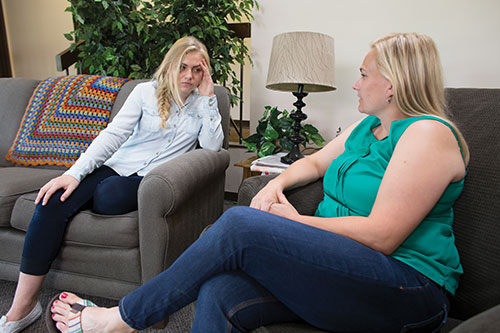In Disciplining Your Adolescent, Consequences Are the Key
 Disciplining your adolescent child can be one of the most difficult tasks you face as a parent. But you have the ultimate authority when it comes to expecting your child to follow the rules and meet your behavioral expectations and deciding the consequences they earn.
Disciplining your adolescent child can be one of the most difficult tasks you face as a parent. But you have the ultimate authority when it comes to expecting your child to follow the rules and meet your behavioral expectations and deciding the consequences they earn.
One proven strategy for successful discipline is establishing a behavioral plan for your adolescent that spells out those rules and expectations, sets reasonable and effective consequences, and promotes good decision-making on the part of your teen.
And while having a strong relationship with your adolescent child is a big plus, consistently using consequences is the key to making your plan work.
For example, nothing means more to teenagers than spending free time with friends and having fun. You are in charge of all of the things that make that possible for your teen, including the car, gas, money and a phone. In these situations, your relationship with your teen should be similar to that of an employer and an employee. In order for your teen (the employee) to earn the privileges they want, they must work for them (follow the rules) and get your (the employer) permission to enjoy them.
Negative Consequences
-
Negative consequences should be short-term and related to the negative behavior that earned the consequence. Short-term means that once your teen has completed a consequence — for example, doing an extra chore for talking back to you — the punishment is over. Tying a consequence to the behavior — for example, studying for an extra hour for getting a poor grade on a test — helps teens learn how to change their behavior so they avoid earning consequences for similar negative behaviors in the future. When your adolescent loses privileges for negative behaviors, give him or her an opportunity to earn the privileges back. You can do this by encouraging your teen to use positive replacement behaviors (that you teach) to show he or she is trying to change. Then you can recognize and praise your teen's efforts with a positive consequence like regaining his or her privileges.
-
Give negative consequences without emotion, like a police officer gives a traffic ticket. This lets teens know their parents gave the consequence only because they broke a rule or didn't meet your expectations, and not because you don't like them or are angry or upset. An unemotional delivery also prevents arguments and keeps your relationship with your teen mutually respectful.
-
When you create your behavioral plan for your teen, let him or her help come up with negative consequences for specific behaviors. Having a voice in these decisions can provide incentive for your teen to follow the rules and the behavioral plan.
Positive Consequences
-
It is important to catch your teenager being good. Good behavior should earn your teen more privileges, more independence and more time for fun.
-
Just like negative consequences, let your teen help select the positive consequences that he or she can earn for good behavior. Again, this increases your teen's buy-in of the behavioral plan.
-
Constantly be on the lookout for good behavior to praise and reward with consequences. At Boys Town, we've found that a ratio of four praise interactions for every one correction interaction (called the 5-to-1 Rule) is an effective way to increase positive behavior and reduce negative behavior. When your teen begins to understand you are not just looking for opportunities to punish him or her but are focusing more on noticing (and rewarding) good behavior, it sets the stage for more consistent positive behaviors.
 Seeking Professional Help
Seeking Professional Help
Families sometimes experience problems that are beyond what a behavioral plan can address. If your teen is involved in harmful or dangerous activities like drug use, self-harm behaviors or physical aggression or violence, seek professional help. These are difficult times for parents, but there is no shame or embarrassment in reaching out to trained professionals for guidance and counseling. Parents make this decision because they are doing what's best for their child out of love and concern.
Additional Resources
-
Get Out of My Life but First Could You Drive Me and Cheryl to the Mall? by Anthony E. Wolf
-
The Teenage Brain by Frances E. Jensen
-
I'd Listen to My Parents If They'd Just Shut Up: What to Say and Not Say When Parenting Teens Today by Anthony E. Wolf
Download Printable Version
Kid Tips;Discipline;Family and Parenting
